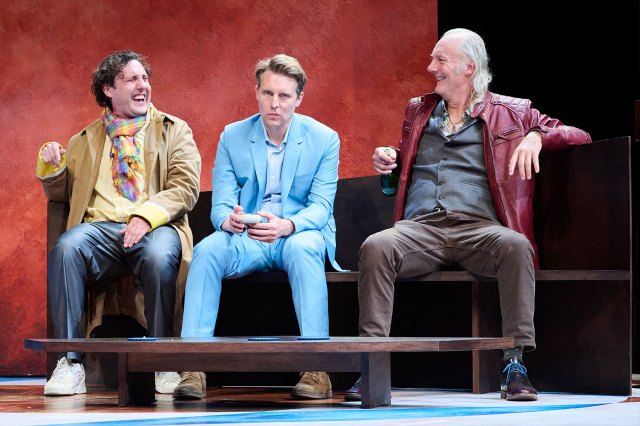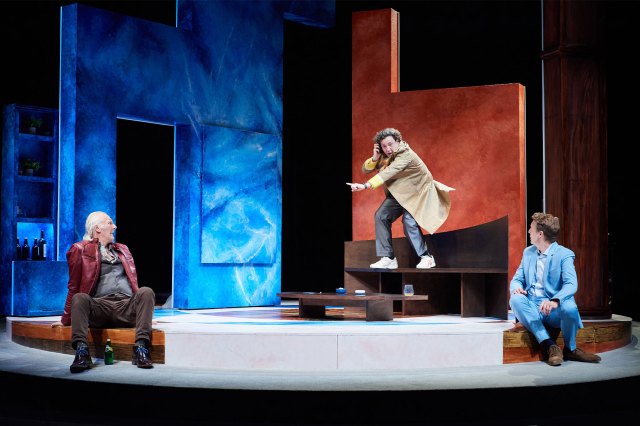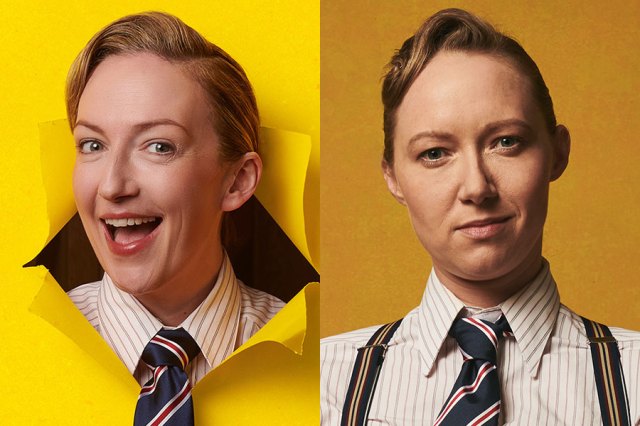Art at Theatre Royal Bath and on tour – review
Seann Walsh, Chris Harper and Aden Gillett star in the 30th-anniversary production

Over the past week, Theatre Royal Bath has revived two modern classics with differing success. Where Alan Bennett’s The History Boys, lands firmly into ‘worth your time’ with its thoughtful exploration of education and a new crop of young acting talent, Yasmina Reza’s Art, 30 years after it opened in Paris, feels very much of its time and with little to say today. A massive success through the late ’90s and early noughties, its influence over modern theatre is apparent, but the pupils have overtaken its master. The jokes feel less funny, and the drama is less exact. It passes time without ever catching the heart and gut.
Reza’s play, translated by Christopher Hampton, explores male friendship dynamics through the prism of their various reactions to a painting that Serge has purchased. The four feet by five of pure white canvas sends his friend Marc into apoplexy that someone could shell 400 grand into its folly. Yvan, meanwhile, stuck in a boring new career and struggling to find the gears to get excited about his upcoming nuptials, is caught in the middle and soon finds himself in the crossfire as the arguments become increasingly heated.
Reza uses the white art to explore class and money, how male friendships are built less on communication and more on a series of rituals that are held (cinema trips, dinners, beer), even as lives move away from each other. For Serge, who sees the word modernist as the highest accolade of culture, the painting is a chance to own a work from a ‘hip’ artist, the act of ownership more important than the need to connect to it. Marc feels a sense of discomfort at his lack of understanding of the work, one no doubt felt by many who have traipsed through Tate Modern to be met by a feted work that leaves them feeling cold.

Yet the best drama gives equal weight to both sides of the coin and I feel Reza lands too heavily on the side that modern art is a con. Marc comes across as a bit of a twerp, with his elongated vowels and scathing put-downs, but you sense that the writer feels some sympathy in his stance that classicism and technique are more essential than ideas and form. It leaves the piece unbalanced.
The original work was catnip to actors, a who’s who of male performers playing the roles. Its 2024 casting feels staid; surely more diversity should be encouraged in any modern casting talks. The performances are adequate without scaling heights, Aden Gillett as Marc fares best, his tall angular frame cloaked in a leather jacket and his greying hair tied back in a ponytail gives a visual representation of the differences he faces with Chris Harper’s Serge, all fitted shirts and designer belts. You may not be able to understand how these two became so close in the first place, but why they go to war makes sense. As the friend trapped in the middle, comic-turned-actor Seann Walsh plays his big crisis speech about his upcoming wedding, less as a 100-metre sprint and more as a winding cross-country run that cruises to the end and generates tepid rather than explosive applause at its finish line.
Iqbal Khan’s production drifts along in a similar gear, through monologues, duologues, and a couple of key trio scenes that never hit explosive heights. It is only Ciaràn Bagnall’s lighting and stage design, that turns the house into a multicolored rainbow exhibition, that adds anything new to this play that feels like it’s way past its peak. Like the painting that the plot revolves around, this play today feels just as empty of purpose.


















